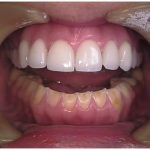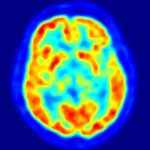Bulimia
Articles, Videos and treatment options for Bulimia
Bulimia Nervosa, also known simply as bulimia, is an eating disorder characterized by recurrent episodes of binge eating (bingeing) as well as a compensatory behavior intended to prevent excessive weight gain. According to the National Institutes of Mental Health (NIMH), 0.6% of the U.S. population will be affected by Bulimia during their lifetime.
You can read our overview of bulimia here, or scroll down to browse the latest articles and videos.

On the surface, the logic seems sound. Since one of the suspected causes of bulimia is depression, why not give an anti-depressant to see if the behavior improves? In fact, there is evidence that SSRIs (selective serotonin reuptake inhibitors) are useful in treating bulimia. Paxil, Prozac, Zoloft and others have shown a 50% rate in …
Read More

Acupuncture is used to treat bulimia based on the idea that it is a gastrointestinal disorder. The discipline uses needles inserted into various points on the body to alter the flow of energy with the idea that this can remedy symptoms. Mainstream Western medicine rejects these ideas and thinks of bulimia as primarily a mental …
Read More

Better to tell or not? Overwhelmingly, it’s better to tell your loved ones than not. Keeping the secret is not only hard, but the stress of hiding can add pressures that increase symptoms of bulimia. When your loved ones know, even though it’s embarrassing to talk about, they are in a position to help. That …
Read More

We often think of bulimia as “that eating thing models get.” But this isn’t the case. Bulimia is a disorder than can manifest itself in anyone and typically strikes teenaged girls. The victims don’t have to appear thin either, although many do. Common signs of bulimia The easiest way to spot a bulimic is in …
Read More

A relapse into behaviors that you know are toxic can be very disheartening. In the extreme, a relapse can mean giving up altogether and going back to previous, harmful binge eating habits. Preventing a relapse is better than going through the pain of recognizing this unwanted and damaging routine is still with you. Here are …
Read More

Bulimia nervosa is an eating disorder characterized by binge eating and obsession with weight loss. The disorder is an overwhelming battle between weight loss and mass consumption of food. Bulimia affects men and women of all ages. Symptoms of Bulimia Bulimia can be detected by observing the physical appearance of someone with the eating disorder. …
Read More

Bulimia nervosa is a medical condition that is marked by unusual eating behaviors. These behaviors can be spotted if you know what to look for, but be aware: none of these constitutes a diagnosis. These are warning signs that can and should generate concern, but only a psychiatrist or physician can diagnose bulimia. Because bulimia …
Read More

A startling statistic: Up to 24 million people in the United States suffer from an eating disorder, according to the National Association of Anorexia Nervosa and Related Disorders (ANAD). Bulimia, which is characterized by frequent, recurring episodes of eating large amounts of food followed by purging – vomiting, excessive use of laxatives, exercising or fasting …
Read More

Laxative abuse is an eating disorder that is often referred to as another type of bulimia. Laxative bulimia occurs when a person attempts to lose weight or purge food from the body through the frequent and repetitive use of laxatives. Laxative abuse can be particularly dangerous because life-threatening side effects like dehydration and organ damage …
Read More

It is estimated that up to 24 million women and men of all ages suffer from an eating disorder. Bulimia, one of the most common eating disorders, is a serious mental illness characterized by frequent, recurring episodes of eating large amounts of food (also called binge eating) followed by purging, vomiting, excessive use of laxatives, …
Read More
 Eating Disorder Self Test. Take the EAT-26 self test to see if you might have eating disorder symptoms that might require professional evaluation. All answers are confidential.
Eating Disorder Self Test. Take the EAT-26 self test to see if you might have eating disorder symptoms that might require professional evaluation. All answers are confidential.
Find a Treatment Facility Near You
Click on a state below to find eating disorder treatment options that could be right for you.









 Eating Disorder Self Test. Take the EAT-26 self test to see if you might have eating disorder symptoms that might require professional evaluation. All answers are confidential.
Eating Disorder Self Test. Take the EAT-26 self test to see if you might have eating disorder symptoms that might require professional evaluation. All answers are confidential.